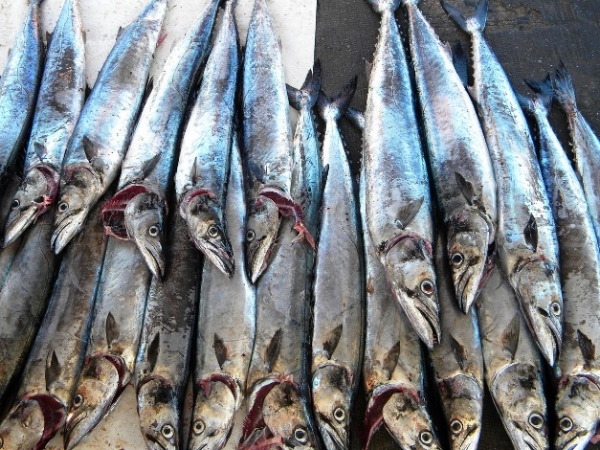No more fish at “snoek point,

The fish seller at “snoek point” has been told by City authorities to move away from the busy road intersection of Spine and Eisleben Roads in Mitchell’s Plain.
Charleston Fredericks, 32, has been selling snoek here for six months. The father of three has been in the fish business for three years after he lost his job at a cleaning company because of health problems. He took over from his uncle who also used to make a living from the catch.
Fredericks moved to the corner when he found he could not make enough profit selling from his home in Rocklands.
On average he sells a fish for R80 and normally makes a profit of R600 a day. His business flourishes at weekends. He has employed one person to assist in the business.
But in terms of the National Road Traffic Act, informal trading is not allowed within five metres of a road intersection and Fredericks says he was moved from his spot by metro police.
He says the crossroads has been known as “snoek point” since a previous trader started selling fish there. That trader is no longer in the business.
“All they told me was that I should move 100 metres away from the robot … This makes no sense because the area they are referring to is dirty and no one will notice me.”
He also says the area he has been told to move to is not safe.
He prefers to trade near other people. There are other vendors selling fruit and vegetables near him but further away from the robot. They did not want to speak to GroundUp.
Yolanda Faro, spokesperson for Cape Town Metro Police, said she was not aware of the incident.
Councillor Ernest Sonnenberg, acting Mayoral Committee Member for Tourism, Events and Economic Development, stated: ‘In terms of the City’s Trading Policy and bylaws, when contraventions of legislation and City bylaws are observed, the Law Enforcement officer will apply their mind to the National Roads Traffic Act, City bylaws and Traffic Regulations with regard to no-stopping signs and lines and advise and guide the informal trader accordingly. This will ensure that the trading is compliant with legislation and City bylaws.’
“If they remove me from this place I have nowhere to go,” says Fredericks. “I took time to build this relationship with my customers from all corners of Cape Town. They now know where to get fresh fish.”
Mitchell’s Plain Informal Traders Association could not be reached for comment.
Next: COSATU still divided after national congress
Previous: How Constitutional are the regulations on public gatherings?

This article is licensed under a Creative Commons Attribution-NoDerivatives 4.0 International License.


